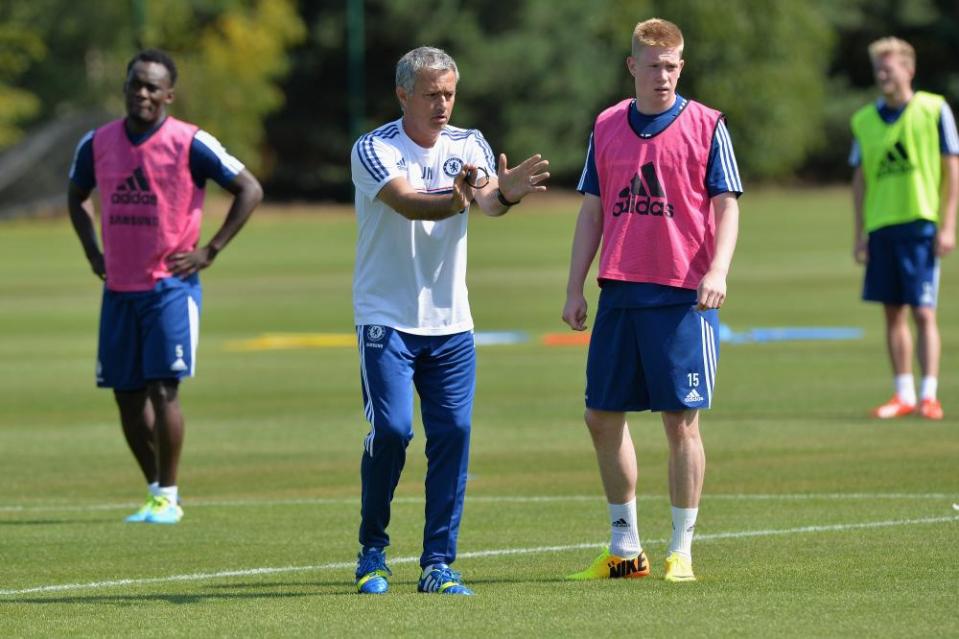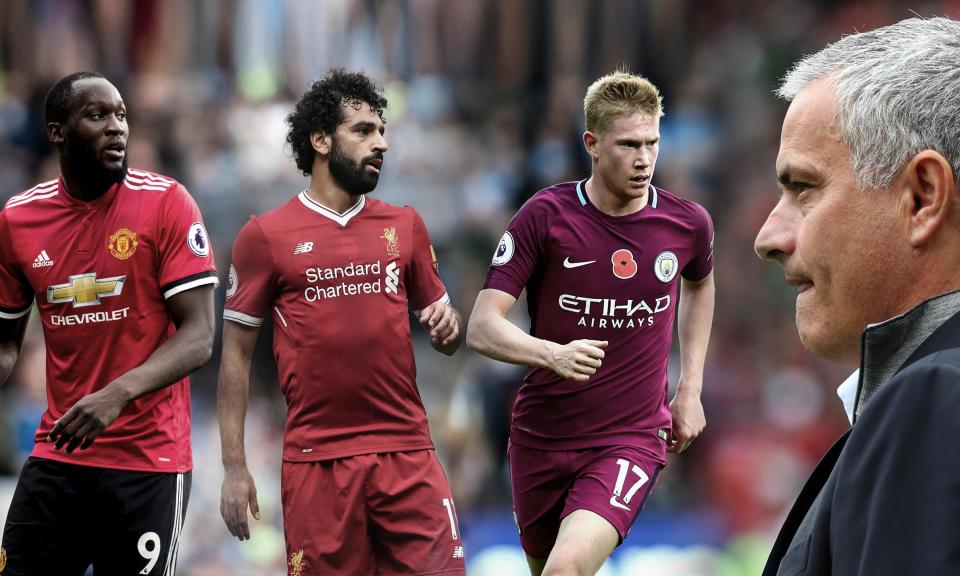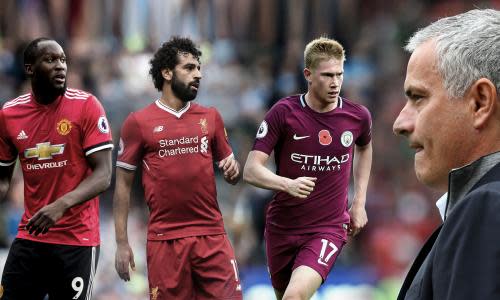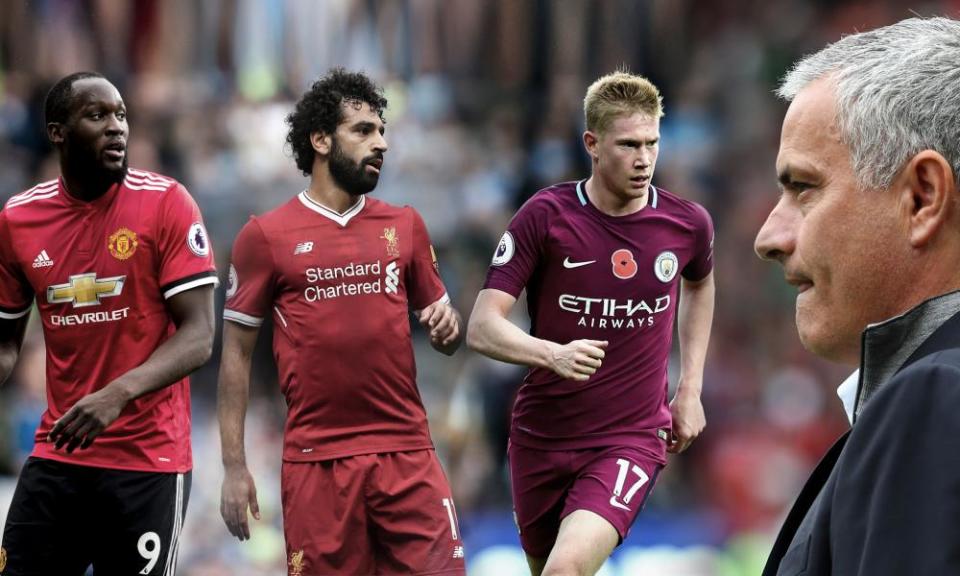Mourinho's mistakes with De Bruyne, Lukaku and Salah are haunting Chelsea
Dick Rowe, the head of A&R at Decca Records in the 60s, was a kingmaker in the music industry. He signed the Rolling Stones in 1963, gave Van Morrison his break and launched the career of Tom Jones. But Rowe isn’t really known for any of these coups. He’s the idiot who rejected the Beatles. “We don’t like their sound,” it’s said that he told their manager, Brian Epstein. “And guitar music is on the way out.” Decca offered a contract to Brian Poole and the Tremeloes instead.
There are similar oversights in all creative industries. Sport is no exception: what, for example, if there was someone who managed to let the three best players in today’s Premier League slip through their fingers? A person who did the equivalent of rebuffing the Beatles, the Stones and the Kinks. That guy would be a world‑class buffoon, no? His name would be a punchline. Well, there is such a man. He’s called José Mourinho.
READ MORE: Exclusive - PSG ready to sack Emery
READ MORE: Gossip - Man United target Pochettino
When Mourinho returned to Chelsea in June 2013, Kevin De Bruyne and Romelu Lukaku were already on the club’s books. In January 2014, they were joined by Mohamed Salah, apparently – like the signings of De Bruyne and Lukaku – on the instruction of Michael Emenalo, Chelsea’s technical director from 2011 until last Monday.
De Bruyne – the same De Bruyne who now gets compared, not ludicrously, to Lionel Messi and Cristiano Ronaldo – was assured by Mourinho that he was part of Chelsea’s plans and then, six months later, sold to Wolfsburg for £18m. This was a decent bit of business for the German club as, just 18 months later, his value had trebled, Manchester City paying £55m. It certainly bucks the current UK inflation rate of 2.9%.

Lukaku, rated in January 2014 by the Guardian as one of the 10 most promising young players in Europe, was sent on loan to Everton not long after Mourinho’s arrival. The deal was made permanent the following summer for a fee of £28m. This has also come to look like a steal: three years later, back in the summer, Lukaku moved again, to Manchester United for a fee rising to £90m. Again, this is more than three times what Chelsea received for him.
Salah, likewise, was never given a run of games by Mourinho, making just 13 league appearances before being packed off on loan. This would eventually lead to a £11m transfer to Roma in the summer of 2016. One year later Liverpool would pay up to £43.9m to bring the Egyptian back to England.
All of these three young footballers – De Bruyne is the oldest at 26 – have been unplayable at times this season. And you couldn’t exactly say it’s a shock they’ve turned into the players they’ve become. No wonder, then, that Mourinho received a cool reception when he returned with Manchester United to Stamford Bridge last Sunday. There was no repeat of March’s three‑fingered salute to Chelsea fans – the number of Premier League titles he won at the club during two stints – though he did very energetically acknowledge the United support when they sang his name.
He’s like the dipsy pater familias at a family gathering where everyone knows he’s frittered away the inheritance
But could you blame the Chelsea faithful for being annoyed with him? What a team they would have now if they had held on to De Bruyne, Lukaku and Salah. How much weaker their title rivals would be. It must be like the dipsy pater familias turning up to a family gathering where everyone knows he has frittered away their inheritance.
Of course, it’s a bit more complicated than that. Chelsea’s transfer strategy has, in recent times, been overseen by Emenalo, the director Marina Granovskaia and the chairman, Bruce Buck, to specifications and budgets set by the owner, Roman Abramovich. Both Mourinho and his successor Antonio Conte have been frustrated by it.
The counter to that, though, is that it was Mourinho’s choice alone not to pick De Bruyne, Lukaku or Salah. Abramovich hasn’t exerted leverage on team selection since the days of Andriy Shevchenko. And it was a lack of playing time that was the key factor in all three leaving.
So, how is Mourinho’s name not mud? How did he walk into the top job at the world’s richest and most popular club? Albeit that club being Manchester United, which itself made the most catastrophic financial bungle in football history: allowing Paul Pogba to leave for free in 2012, only to buy him back four years later for £93m.
Mourinho would point, as he always does, to his palmarès. In the 2014-15 season, Chelsea’s experienced squad lost only three matches and won the League Cup and the Premier League. Also, Mourinho is nothing if not a pragmatist. The average tenure of a manager in English football is around 1.3 years; Mourinho, famously, seems to work on a three-year cycle. He might have trusted De Bruyne, Lukaku and Salah, given them the 30-odd games a season that would have kept them happy and Chelsea could easily have won nothing. And there’s nothing worse, in Mourinho’s world view, than being “a specialist in failure”.
What does this matter, anyway? The players were not psychologically scarred by the experience, and neither was Mourinho; Chelsea returned to winning ways last season. Well, it’s relevant because England currently has perhaps the finest crop of young players in its history. In the past few months, the country became only the second nation (after Brazil in 2003) to win the Under-20 and Under-17 World Cups in the same year. How these players are brought through will be vital to the future success of the senior squad.
Most of these players come from the academies at a big Premier League club. What happens next to them will be instructive to watch. Chelsea, especially, have overseen the development of some of the most exciting young talents in English football right now: Tammy Abraham, 20, and Ruben Loftus-Cheek, 21, both current loanees from Stamford Bridge (at Swansea and Crystal Palace, respectively), were called up for England’s friendlies against Germany and Brazil. The versatile 22-year-old midfielder Nathaniel Chalobah was allowed to join Watford in July, around the same time Danny Drinkwater was coming in for £35m.
Surely Chelsea aren’t going to sit back and watch another talent drain? In the fast-return, results-now world of the Premier League, you couldn’t bet against it.




